|
Guest post by Samantha Blakney The Root of All Evil: |
| Samantha Blakney is a short fiction, non-fiction and poetry writer for different anthology, from Free Spirit Publishing. (This was a Mistake) and (The Zeitgeist Exists). She has also been published in Along the Shores of Grief by Orange Blossom Publishing, (The Loss of my Mother), A forthcoming anthology by, Wingless Dreamer Publisher, Christmas Cheerios. (The Burning of the Christmas Yule-Log) poetry. Also, by Wingless dreamer Publisher, My Sanskriti Teal (Diversity of the Dark Color of Women). |
0 Comments
| Andie L. Smith is a Young Adult author from Central Florida. She writes coming-of-age stories sometimes set in our world, other times found in a futuristic society, but all involving an emotional journey for her characters. Her first novel LUCKY ENOUGH is set to be published in Fall 2023 with Evernight Teen. She is also a Junior Agent at The Booker Albert Literary Agency. |
Outside of the literary world, Andie is currently pursuing her Master's in Public Administration and works in International Education and Sustainability. She loves to spend time with her husband and two kitties or hang out at Disney World.
Interview with Andie L. Smith
Thank you Andie, for taking the time to chat!
When did you know you wanted to become an author?
Ever since I was a child. I was always off in my own world, writing short stories and coming up with all sorts of adventures in my head (like any other child). Only for me, I decided to write them down and turn them into something else. As I got older and enhanced my reading list, I knew it was a passion I wanted to pursue.
When did you first consider yourself a writer?
When I was in middle school, my English class had to write a continuation story of Annabel Lee by Edward Allen Poe. A "what do you think happened next" sort of thing. That was the first time I pushed myself beyond fun little adventurous stories and wrote something heart wrenching and beautiful, the words just seemed to pour out of me. I'll never forget my conversation with my English teacher (shout out Mrs. Shumaker!) hyping up my talent and urging me to write something one day. That was the day I considered myself a writer and knew I wanted to be an author.
Who is your biggest inspiration?
Honestly, I have been and continue to be inspired by debut authors who kind of come out of nowhere but leave such a lasting impression for the rest of us. Anna Todd is one of my favorite authors, and her story is so inspiring to anyone looking to write--just do it, because you never know what will happen.
How do you come up with your ideas?
My dreams! Which I feel like happens to a lot of people, but my dreams get weird. They are so vivid, and it's almost as if I'm watching a movie of my entire book while I sleep. Then I usually wake up in the middle of the night, frantically writing everything down so I can start working on it and not forget a single thing.
Are your characters inspired by or based on real-life people?
A little of both! My first release was a Young Adult contemporary novel that was largely inspired by the event of losing my father at a young age. So a lot of those characters are based on important people in my life during that time. My upcoming Dystopian release, however, is full of fictional characters and I've had so much fun creating personalities and quirks from the ground up.
What comes first, the plot or the characters?
Plot! Most of my ideas come from dreams, and there are characters but it's mainly the plot I envision first and then create the characters from there.
What would you say is your most interesting writing quirk?
I have a weird thing with keyboards. I really have to love the way a keyboard feels/sounds as I'm "writing" or it will really throw me off my game.
How did publishing your first book change your writing career?
I think it showed people, especially my friends and family, that I'm serious about this. I've been "talking the talk" about being a writer for so long but once I had something out there in the world, there was this moment of "oh, she's really doing this!" which has been a wonderful time with nothing but support and love from everyone in my life. It's also propelled me forward in my writing, everything I've done since my first book I feel is so much better than the last and I'm constantly learning new things and looking to improve my work.
Have you ever gotten writer's block? How did you work through it?
I have, though I don't know if I would classify it as writer's block. For me, it's days when I feel a little burnt out, most often because I've been pushing myself from all different ends of the candle. Nothing good can come from a day when I'm like that, so I've learned to accept it and listen to my mind/body to take a break and know that it's okay if I don't write every single day.
What are you working on now?
I am working on the second book in my dystopian series, and also drafting a young adult sapphic romantasy featuring some fun legends and lore. :)
What advice would you give aspiring authors?
Put a pen to paper. Place your fingers on the keys and just type. However you write, just start! You never know what can happen and you might just impress yourself. Also, know that it's okay to hate your first draft. It's called a first draft for a reason, but it can only get better if you keep at it!
What do you like to do when you're not writing?
I'm either reading, hanging out at Disney World, or rewatching The Vampire Diaries for the billionth time.
What are three things that are unique about you?
1. I married my high school sweetheart.
2. I'm very passionate about climate education and the environment.
3. I could eat Asian food for the rest of my life and be perfectly content.
2. I'm very passionate about climate education and the environment.
3. I could eat Asian food for the rest of my life and be perfectly content.
Guest post by Margaret Roblyer
My Favorite Things: The Movies
I’m a writer, so you’d think I’d claim the written word as my favorite medium. While I can name favorite books, poems, and short stories, I have to admit that their characters and imagery don’t make the frequent guest appearances on the stage of my everyday life that video does. Movie actors and great dialogue are most often cast in these leading roles.
I met my favorite film in 1961. My mother had given up her dream of making it on her own as a legal secretary in Jacksonville, Florida, and dragged me, aghast and protesting, from my beloved tropical paradise back to the technicolor-starved, rural village of Cresaptown, Maryland, where we had come from. Having spent the last five years in the former, I had few friends or acquaintances in the latter. A thoroughly miserable girl of 14 with nothing else to do besides seethe and cast lethal looks in my mother’s direction, I spent much of my time draped mournfully across a living room chair in front of our small, black-and-white TV, watching whatever appeared on its two channels. On one those splendid summer days before the school year began, when the sun shone like a spotlight outside and with the low whirr of lawn mowers
in the background, I shunned the outdoors, turned instead to the luminous screen, and saw the 1947 movie Stairway to Heaven.
I met my favorite film in 1961. My mother had given up her dream of making it on her own as a legal secretary in Jacksonville, Florida, and dragged me, aghast and protesting, from my beloved tropical paradise back to the technicolor-starved, rural village of Cresaptown, Maryland, where we had come from. Having spent the last five years in the former, I had few friends or acquaintances in the latter. A thoroughly miserable girl of 14 with nothing else to do besides seethe and cast lethal looks in my mother’s direction, I spent much of my time draped mournfully across a living room chair in front of our small, black-and-white TV, watching whatever appeared on its two channels. On one those splendid summer days before the school year began, when the sun shone like a spotlight outside and with the low whirr of lawn mowers
in the background, I shunned the outdoors, turned instead to the luminous screen, and saw the 1947 movie Stairway to Heaven.
Daytime programming in those days was sparse, which I imagine is why each station
featured at least one old movie a day. When I finished a movie on one channel, I’d switch to the other to see what was on. I fell in love with Charles Laughton and Alex Guinness, envied the slender forms and soigné, languorous slinks of Myrna Loy and Marlene Dietrich, and to my mother’s chagrin, began emulating the quick comebacks and snide remarks I heard in my favorite films. Without realizing it, I was not only collecting an anthology of movie memories but beginning a lifelong habit of applying their themes to my life and adopting their lines into my language.
Stairway to Heaven was the first post-war movie collaboration between American and British filmmakers; in England it had another title, A Matter of Life and Death. In its opening scenes, I heard British airman and burgeoning poet Peter Carter (David Niven) on the radio in a burning airplane, preparing to die as he quoted Andrew Marvel’s marvelous works. When I heard him exclaim, “I’d rather have written that than flown through Hitler’s legs!” I thought to myself, “Yeah, this is the way people should talk.”
I saw him and American servicewoman June (Kim Hunter) standing hand in hand before a celestial court, pleading that they deserved to live out their lives together even though the airman’s number was up, and I said to myself, “Love looks like this.” Long-dead American patriot Raymond Massey, serving as heavenly judge advocate, made his xenophobic case that this “minor British poet” didn’t deserve more time on earth with this girl of “good Boston stock.”
At the end, the heavenly judge quoted Sir Walter Scott’s poetry and decided in the couple’s favor, and I closed my eyes and understood how justice is larger than law and love more powerful than either. Then I opened them and said, “This is the way life should work.”
featured at least one old movie a day. When I finished a movie on one channel, I’d switch to the other to see what was on. I fell in love with Charles Laughton and Alex Guinness, envied the slender forms and soigné, languorous slinks of Myrna Loy and Marlene Dietrich, and to my mother’s chagrin, began emulating the quick comebacks and snide remarks I heard in my favorite films. Without realizing it, I was not only collecting an anthology of movie memories but beginning a lifelong habit of applying their themes to my life and adopting their lines into my language.
Stairway to Heaven was the first post-war movie collaboration between American and British filmmakers; in England it had another title, A Matter of Life and Death. In its opening scenes, I heard British airman and burgeoning poet Peter Carter (David Niven) on the radio in a burning airplane, preparing to die as he quoted Andrew Marvel’s marvelous works. When I heard him exclaim, “I’d rather have written that than flown through Hitler’s legs!” I thought to myself, “Yeah, this is the way people should talk.”
I saw him and American servicewoman June (Kim Hunter) standing hand in hand before a celestial court, pleading that they deserved to live out their lives together even though the airman’s number was up, and I said to myself, “Love looks like this.” Long-dead American patriot Raymond Massey, serving as heavenly judge advocate, made his xenophobic case that this “minor British poet” didn’t deserve more time on earth with this girl of “good Boston stock.”
At the end, the heavenly judge quoted Sir Walter Scott’s poetry and decided in the couple’s favor, and I closed my eyes and understood how justice is larger than law and love more powerful than either. Then I opened them and said, “This is the way life should work.”
I have mused much about this time over the years. While you should not think my entire life philosophy comes from movies, clearly some scriptwriters have been influenced by the best philosophers and the greatest books. So now I think that maybe the moment the right stuff rises up from these great works and lands on the pages of scripts is what makes movies really become magic. And maybe that’s why it’s okay that, with a nod to Julie Andrews in The Sound of Music, movies are among my favorite things.
| M. D. (Peggy) Roblyer is a retired Professor of Educational Technology and textbook author who helped usher in the world of educational technology in the 1970s, becoming prominent for shaping this new discipline in the online era. In a career that spanned nearly 40 years, she authored a dozen textbooks, including Integrating Educational Technology into Teaching, which became the best-selling text in the field when published in 1996 and remains so today in its ninth edition. Since retiring in 2015, Peggy has focused on her love of language by joining the River City Writer’s Club, serving as founding editor for the Longleaf community newsletter and past webmaster for the Chattanooga Writers Guild. She is currently querying publishers for her memoir, Strong Glass: A Memoir of Escaping the Dark Mirror of Family History, and enjoys writing essays like those appearing on her website blog: http://www.mdroblyer.com. |
| Some of Ree's earliest memories are with a book in her hand, and today, she still loves to read stories of all kinds, from children’s poetry to adult suspense novels. Before her love of reading turned into a love of writing, she took many turns in her life, some of which were an accountant, a retail clerk, and a volunteer worker for abused women. |
When she and her husband started their family, she became a stay-at-home mom to two boys. It was then, in a few solitary moments, she put a pencil in her hand and discovered a love of writing. Now, she spends her mornings in Eastern, PA creating stories of her own with her writing partner by her side, a sleepy greyhound. Quiet things inspire her: a word, a child’s desire, a tug in her heart. Afternoons and evenings are for family, friends, and lots of daydreaming. Visit her website at www.reeaugustine.com or follow her on Instagram ree.augustine.
Interview with Ree Augustine
Thank you, Ree Augustine, for taking the time to chat!
When did you know you wanted to become an author?
I'm not sure I ever wanted to be an author per se. I just wanted to write and have a story published. Being an author is so different than being a writer. So to answer the question in a different way, I wanted to be a writer when I started reading to my young kids.
When did you first consider yourself a writer?
The moment I started to write stories, whether published or not.
Who is your biggest inspiration?
So many people inspire me in my life. With writing, I'm a huge fan of Kate DiCamillo. But there are many more.
How do you come up with your ideas?
My ideas come from all kinds of places. For Hangabout: Far from Home, I wanted to do a love vs. fear theme, and I thought a cat and dog would be a great way to illustrate that. Then the story took me on its own journey and wound up being an entirely different theme. For my current WIP, my character is based on a piece of artwork that one of my kids made when they were young.
Are your characters inspired by or based on real-life people?
Not really. But I might take something someone said or did and work it into a character. The other day I met someone at the train station, and they had something very interesting in their pocket. I definitely want to use that with a future character.
What comes first, the plot or the characters?
Character. Character. Character. I might have a setting in mind, but the character leads the way.
What would you say is your most interesting writing quirk?
I play three games of solitaire before I write each morning.
How did publishing your first book change your writing career?
I've gotten to meet readers and young people who want to become writers. It's been very rewarding.
Have you ever gotten writers block? How did you work through it?
I don't really get writer's block. I do have many stories that never see the end, though, because the story just isn't working.
What are you working on now?
A story about a lopsided gargoyle who is trying to find a world he belongs to.
What advice would you give aspiring authors?
I hate giving advice because everyone's experience is so different. What works for me is to write every day. I also had to keep making the decision to write every day, even if publication never happened.
What do you like to do when you're not writing?
I love to run. (I'm very slow, and it might look like I'm walking, but for me, it's a run.)
What are three things that are unique about you?
I'm pretty ordinary, but if there's one thing that's a little unique, it's that I drink celery juice every morning.
Is there anything else you'd like to share?
This has been so fun. Thank you for doing author spotlights. OBP has been a wonderful place to call home for Hangabout: Far from Home. Thanks to all of you who work behind the scenes.
Guest post by Anna Franklin
Four Books Set In Central Florida that Every Orlando Native Needs to Read
Living in Orlando we hear plenty about all the tourist destinations and amusement parks, but sometimes we want to get away from it all... while also staying exactly where we are. It’s good to want to step out of your own head and away from your normal life. So why not read some fiction books? Some people use reading to get away from where they are physically, but sometimes reading about where you are can help you appreciate where you are at in life. This list is perfect for the reader who loves where they live and a good plot.
Paper Towns by John Green
Since John Green grew up in Orlando, it makes sense that some of his writing is inspired by his previous home. Paper Towns follows the main character, Quentin, while he has an obsession with finding his neighbor, Margo Roth Spiegelman after she goes missing. John Green has a habit of writing his female characters to be very “manic pixie dream girl”-esque. The book takes place at Winter Park High School where the main character then leaves to go pursue the girl of his dreams who, at the same time, doesn’t want to be found. As the reader, you can really see how the novel was influenced by John Green’s Orlando experience as a teen; the humid, sticky heat, and even a reference to Sea World. The plot seems like it’s going to focus on the love story, but the journey of discovering clues and the mystery of Margo’s disappearance is what captures the reader. Specifically, one plot point that made this book a favorite, is the cross-country road trip the unlikely friend group takes. Wait till you finish the book to make a decision on whether it’s your new favorite read!
Float by Kate Marchant
Recently, this novel has been made into a movie which will premiere on February 9th, 2024. It was originally published on Wattpad, which is a social media platform for publishing and reading original stories. The main character, Waverly Lyons, is shipped from her home of Alaska to Holden, Florida where her romance begins after meeting Blake. It’s a cold-weather-loving Alaskan girl meets a Florida lifeguard–it could not fit in more to the “opposites attract” book trope.
With Love, From Cold World by Alicia Thompson
This book is what made me want to write this list. It was the first book I read by Alicia Thompson and she did not disappoint. She’s a central Florida native who writes characters with such rich backstories; which is not so commonly found in romance books. This book is categorized as a contemporary romance book but it focuses on so much more than that- sexuality, the foster care system, the fear of vulnerability, and more. Two coworkers who are complete opposites who also work in a fake, run-down tourist attraction? Hilarious. The banter and interactions between the two love interests is what keeps the readers intrigued. Such a sweet, fun read while also shedding light on important subjects. I couldn’t recommend this novel more for my Orlando-native-romance-novel-loving-girlies!
Hoot by Carl Hiassen
Almost every person who was a kid in the 2000’s read Carl Hiassen. I feel like he’s one
of the staple authors that we were either forced to read or recommended to read. I know this recommendation is technically a children's book but this book is truly for all ages. The story of these young, Florida kids who are determined to not let the construction company hurt the native Florida owl. It’s such a great, empowering story that will make you feel for all the relatable characters. Especially if you grew up in central Florida, you will understand what these kids go through. I mean a construction company making a mistake in Central Florida? Yeah, the grownup version of that is the eyesore on I-4.
of the staple authors that we were either forced to read or recommended to read. I know this recommendation is technically a children's book but this book is truly for all ages. The story of these young, Florida kids who are determined to not let the construction company hurt the native Florida owl. It’s such a great, empowering story that will make you feel for all the relatable characters. Especially if you grew up in central Florida, you will understand what these kids go through. I mean a construction company making a mistake in Central Florida? Yeah, the grownup version of that is the eyesore on I-4.
| Anna Franklin received her English literature degree from the University of Central Florida and completed the Summer Publishing Institute from New York University. Currently, she resides in Orlando with her three-legged cat, Hoagie. When she's not freelance writing or reading romance novels, she's working at the bookstore. https://www.linkedin.com/in/annaefranklin/ |
Five Essentials for Successful
Conference Networking
When someone says “networking,” does it make you want to run and hide under the hotel chair? Conferences are the best place for writers to meet authors, editors, agents, and other industry pros. In order to make real connections and lasting impressions, you need to boost your networking skills. Follow these easy guidelines and you’ll quickly become a networking pro, no hiding needed!
Use Name Gimmicks
This may sound basic, but how many times has someone told you their name and you instantly forget? You didn’t tell your brain to keep that information. Whoops. The first thing to do when someone says their name is to create a memory gimmick for your brain. Connect the person’s name with something they’re wearing or perhaps a physical feature. For example, Curly Hair Carrie or Red Shirt Roger. Repeat the name gimmick several times in your mind. Then be sure to say the person’s name immediately in the conversation. “So, Roger, what do you like to write?” Say it again at the end of the conversation, too. “It was great meeting you, Roger.” Multiple name use not only helps store the information in your long-term memory, it also makes the person feel a positive connection and that you truly were listening.
Ask Questions
People generally enjoy talking about themselves. Start the conversation by asking a question such as “How long have you been writing?” or “What are you working on now?” Then ask follow-up questions after. The trick is to create a question trail. Get onto a topic where you can generate several follow-up questions. I used this strategy recently with an editor from MacMillin. I had the opportunity to chat one-on-one with her for 45 minutes. I asked if she had any plans for the summer and she mentioned rock climbing. I questioned about equipment, good locations, strategy and so on. She enjoyed talking about her hobby and I loved hearing about something new. Try to get onto a subject you find genuinely interesting or that you both have in common. If you truly enjoy the conversation, you won’t even notice you are networking.
Have Business Cards Ready
When the conversation is closing, have a business card at the ready. Tell the person you enjoyed talking with them and you’d love to stay in touch, then hand them your business card. If you don’t already have one, you can order some for a decent price from Moo Cards, Vista Print, or Staples. Make sure to have the basics on your card: name, phone number, email, website, and social media. If you want to get fancy you can add a custom logo, book cover, or headshot. Keep it simple—a cluttered business card looks unprofessional. When the person hands you theirs, jot a quick note about where you met them to remind yourself later. Be sure to follow up after the conference and maintain the connection.
Don’t Skip Social Events...or the Bar
No, I’m not recommending alcohol, but you should stop by the hotel bar to see who’s hanging out there. Oftentimes, people take breaks and grab a drink. It’s a great opportunity to meet people and possibly get one-on-one time with industry professionals. Another place to chat and connect is at conference social events. FWA’s genre breakfast is a perfect example. People are more laid back and open to talk. There are also larger blocks of available time at social events and frequently there is a theme to discuss.
Don't Push It
While it’s important to market yourself, you want to do it tactfully. There’s an etiquette with industry professionals. Don’t force your book or manuscript when it isn’t requested or expected. It puts the person in an awkward position. They may not have the time or interest in looking at your work but don’t want to seem impolite. The best course of action is to talk with the professional, get their business card, and ask if you can email it to them.
If you follow these tips, you’ll make many positive impressions and build the foundation for genuine, lasting connections. Make sure you’re focusing on the other person by asking questions and not dominating the conversation. Once you’ve shown interest in the person, they’ll reciprocate and ask questions about you. Remember to make it fun and you’ll find that networking is a piece of cake.
If you follow these tips, you’ll make many positive impressions and build the foundation for genuine, lasting connections. Make sure you’re focusing on the other person by asking questions and not dominating the conversation. Once you’ve shown interest in the person, they’ll reciprocate and ask questions about you. Remember to make it fun and you’ll find that networking is a piece of cake.
Guest post by Paula Borba
Controlling Stress in Our Daily Lives
When we talk about the frenetic day-to-day life, full of tasks to be done or current illnesses, the name stress arises somewhere. That's because stress affects about 90% of the world's population, according to international health organizations.
But after all, what is stress?
But after all, what is stress?
Evolution of Stress
Stress is something ancient, with different evolutions. We can say that Man was already living under this greater tension, which is stress when he needed to fight against animals, hunt, and seek survival. There were tribes, guerrillas, and disputes between civilizations until the World War, which is an undeniable fact of great stress and trauma in the population.
Today, in a more civilized world, we can say that there are other forms of stress: pursuing good jobs, having a good social status, facing market competitiveness, overload of daily activities, needing to experience a bit of everything, seeking overall life satisfaction.
Today, in a more civilized world, we can say that there are other forms of stress: pursuing good jobs, having a good social status, facing market competitiveness, overload of daily activities, needing to experience a bit of everything, seeking overall life satisfaction.
Living with Stress
Is it possible to live with stress without suffering health damage? Yes, there is the positive side of stress, which is that physiological sensation, in other words, that energy that our body needs to keep us motivated to achieve our goals. It is necessary to learn to recognize if this "stressful" pace allows the individual to maintain good functional performance and engagement in their activities, so we can say that the person is underproductive stress.
However, suppose one perceives that the stress level is leading to a loss of quality of life, impairments in functionality and performance, or the emergence of signs or symptoms that did not exist before. In that case, alerting to a possible pathological stress level is good. It is usually associated with prolonged and constant exposure to stress.
However, suppose one perceives that the stress level is leading to a loss of quality of life, impairments in functionality and performance, or the emergence of signs or symptoms that did not exist before. In that case, alerting to a possible pathological stress level is good. It is usually associated with prolonged and constant exposure to stress.
Physical and Psychological Impacts
When stress becomes an illness, we can observe its manifestation in two ways: physical and psychological. The individual may start to experience an excess of physical complaints such as chronic pain, excessive fatigue, muscle tension, changes in bowel function, whether diarrhea or constipation, changes in appetite, either more or less and sleep disturbances, including excessive drowsiness or insomnia. In terms of psychological changes, we may notice anxiety, distress, lack of joy in daily life, disinterest in things they used to enjoy, easy crying, irritability, and loss of sexual interest, among others.
At this point, it will probably be necessary to reevaluate one's life, make lifestyle changes, distance oneself from potentially stressful situations, and sometimes seek
the help of a mental health professional or related fields such as lifestyle medicine and psychology.
At this point, it will probably be necessary to reevaluate one's life, make lifestyle changes, distance oneself from potentially stressful situations, and sometimes seek
the help of a mental health professional or related fields such as lifestyle medicine and psychology.
Managing Stress
What could be done to avoid being affected by the stressful daily life? It's essential to
understand each person's limit. A certain pace of life may be stressful for someone but not for another. Seeking to prioritize one's life and following more or less a schedule can help avoid overextending oneself with tasks and commitments. Striving to balance daily life with moments of rest, leisure activities, physical exercise, healthy foods, and sound, restful sleep are strategies to escape stress.
Do you think you'll need to set aside such special moments or large spaces in your
schedules to put good moments on your agenda? Not exactly; it's simpler: noticing yourself is essential. Stop! Notice how you're feeling. This can be done with small breaks in your day, like stopping to move your body, stretch, and have some water, tea, or coffee. Stand up for 5 to 10 minutes, enjoy a beautiful view beside you, and appreciate nature and a sunset. Your brain will stop the autopilot stimulus and reconnect with yourself.
Processes like these are scientifically proven to generate adequate well-being substances called neurotransmitters. After these breaks, you'll return to your tasks with more energy, physical and mental disposition, concentration, and even new ideas!
After all, our brain must relax to retain new information and perform well. Take care of your body and mind, always! One is the language of the other.
In stress, our body speaks when we don't perceive it mentally. Pay attention to your limits, take care of yourself, and love yourself more daily! This way, you'll use stress's positive side to make significant lifestyle changes!
Enjoy and start now!
understand each person's limit. A certain pace of life may be stressful for someone but not for another. Seeking to prioritize one's life and following more or less a schedule can help avoid overextending oneself with tasks and commitments. Striving to balance daily life with moments of rest, leisure activities, physical exercise, healthy foods, and sound, restful sleep are strategies to escape stress.
Do you think you'll need to set aside such special moments or large spaces in your
schedules to put good moments on your agenda? Not exactly; it's simpler: noticing yourself is essential. Stop! Notice how you're feeling. This can be done with small breaks in your day, like stopping to move your body, stretch, and have some water, tea, or coffee. Stand up for 5 to 10 minutes, enjoy a beautiful view beside you, and appreciate nature and a sunset. Your brain will stop the autopilot stimulus and reconnect with yourself.
Processes like these are scientifically proven to generate adequate well-being substances called neurotransmitters. After these breaks, you'll return to your tasks with more energy, physical and mental disposition, concentration, and even new ideas!
After all, our brain must relax to retain new information and perform well. Take care of your body and mind, always! One is the language of the other.
In stress, our body speaks when we don't perceive it mentally. Pay attention to your limits, take care of yourself, and love yourself more daily! This way, you'll use stress's positive side to make significant lifestyle changes!
Enjoy and start now!
Before writing full time, she blamed her messy house on homeschooling her four daughters, who are now out of school. Paur is the author of the middle-grade fantasy, Isasnora Snores. She blogs and hosts a podcast, Talking to Myself. While cleaning could be a priority, she’d rather be traveling with family, hosting game nights for friends, or reading a good novel. Find her online at www.clpaurauthor.com, Instagram - authorclp, or Twitter @ArmorCate.
Interview with Carol Paur
Thank you Carol Paur for taking the time to chat!
When did you know you wanted to become an author?
I was ten-years-old and had written the story of Tommy the Toothpick.
When did you first consider yourself a writer?
I was ten.
Who is your biggest inspiration?
My Family
How do you come up with your ideas?
My ideas actually are always flowing inside my mind. If something strikes me I write the idea down and make a folder on my computer. Sometimes the ideas stay there because they're ludicrous. Other ideas, like Early Summer, took a few years to incubate into an actual novel. Being in nature, traveling, and spending time with family helps generate new ideas.
Are your characters inspired by or based on real-life people?
Maybe. I am trying to protect the innocent.
What comes first, the plot or the characters?
Sometimes it's the plot; sometimes it's the characters.
What would you say is your most interesting writing quirk?
Making friendships with my protagonists.
How did publishing your first book change your writing career?
Publishing my first book let me know that I could do it. It had been some vague nebulous dream. It encouraged me to keep writing. At the back of my mind I tell myself if I can't find a publisher I can always publish the book myself. After three-self published books, I've been fortunate to find publishers willing to publish my work.
Have you ever gotten writers block? How did you work through it?
Yes. Each time I sit down to work on a project, my mind seems to go blank. I give myself permission to write anything knowing there are rewrites in the future. Soon, I find myself going over my scheduled time.
What are you working on now?
I'm pitching several picture books; I've started a cozy mystery series; I'm working on the rewrites of a YA novel; I'm exploring writing a YA horror novel; and I am always writing some picture book.
What advice would you give aspiring authors?
There will be lots of naysayers out there. Don't listen to them. For me it was always, "Writers don't make money." They were right. What they didn't know was that writing gives me a reason to live. I feel nothing when I am not writing. You will probably need to have another job or have a spouse who supports you, but don't let anyone tell you it's a hobby. Writing is a vocation. Respect it.
What do you like to do when you're not writing?
Read. Hike. Travel. Play games. Plant flowers. Look outside my front porch when it's snowing or sit in my patio when it's warm.
What are three things that are unique about you?
My DNA; I did standup; I looked into being a nun.
Is there anything else you'd like to share?
I am grateful to my family and to any publishers/agents willing to take on my projects.
Orange Blossom Publishing Books by Carol Paur
Guest post by Karen Pedersen Travis
Creature Comforts
As the oldest of three kids, I loved being a big sister. So, when I had a child of my own, I always planned to have another. But life rarely goes according to plan. When I became a single mom with an only child, I knew I had to get it right. I only had this one chance—there were no do-overs. The pressure was on. And my baby wanted a baby.
“When can we get a baby?” my daughter asked from her car seat when she was three.
“We can’t just ‘get’ a baby, honey.”
“Yes, we can,” she said as we passed by the hospital. “They have them right there.”
“It doesn’t work that way,” I said, catching a glimpse of her in the rear-view mirror.
Barely more than a baby herself. It was clearly time for another talk about the birds and the bees.
My baby wanted a baby. What’s a single mother to do? Maybe, just maybe, it was time to get a puppy.
Our 14-year-old German Shorthair Pointer had just passed away and our house was
empty without her. My daughter tried filling the void with other animals. She named the worms in our backyard. She collected frog eggs in glass jars, hoping they would hatch. She even picked up a garter snake on our walk, holding it up to show me how “cute” it was as it wrapped itself around her arm.
“Can we keep it?” she pleaded.
“Nope.” No way.
That’s when I decided we would get a puppy. Not just any puppy, I thought to myself,
but one that looked and acted exactly like the quiet, calm, older dog we’d just lost.
Once again, things didn’t go according to plan.
Zippy was an adorable pup. She looked like a mini-me to our lost pet—a graceful,
green-eyed, long-legged canine that could go from zero to 60 in three seconds flat. But, unlike her predecessor, Zippy was rambunctious—prone to scratching, barking and running away.
As she grew bigger, I grew increasingly overwhelmed. When she wasn’t knocking us
over with sheer enthusiasm, she was jogging in place on a leash, longing to run. I realized I wasn’t being fair to the dog. After finding a hunter who was eager to take her, we found ourselves once again without a pet.
Eventually, guilt got the better of me. I tried filling the void with a hamster, but it simply wasn’t the same. My baby still wanted a baby. And my mother, who loved being a grandmother more than anything in the world, wanted her to have one, too.
Once my mother decided to do something, there was little anyone could do to stop her—especially when it comes to pets. Growing up, we always had a menagerie of animals underfoot.
If she wanted us to get a dog, I knew that sooner or later she would talk me into getting one. But I didn’t want to fail. Again. So, I proceeded with caution.
In the meantime, my mother was on the hunt for a puppy for herself. When she found the “perfect litter,” she convinced my daughter and me to “come have a look.”
As anyone who has ever gone to “look” at a litter of puppies knows, the experience never stops there.
“These are the best dogs,” my mother said. “They never get bigger than eight pounds.”
A perpetual puppy, I pondered. Interesting. Go on...
“And here’s the best part: They never, ever bark!” This from the woman who taught me that, when something sounds too good to be true, it probably is. Nonetheless, we adopted a small, white, fluffy, barking little furball named Skippy. My baby finally had her baby, and he served us well for nearly 15 years.
Fast forward twenty years and the tables are turned. Scrolling through social media, I see pictures of friends with grandbabies perched in highchairs wielding spoons like swords. Toddlers trotting across the kitchen floor, their little buts wiggling in thick, diaper-padded pants. Cheeky smiles of kids in car seats on their way to pumpkin patches. Adorable.
My little girl is an adult now. She and her fiancé just bought a house. And she is not yet ready to have kids. So, what’s a grandmother-in-waiting to do?
Enter Vivi, my beautiful, black-haired, green-eyed, crumpled receipt fetching grand kitty.
“Hi mom. We’re going out of town,” my daughter texts. “Can you check on Vivi?”
“Yes!” I write back, eager for kitty-cuddles. I can work with that.
“When can we get a baby?” my daughter asked from her car seat when she was three.
“We can’t just ‘get’ a baby, honey.”
“Yes, we can,” she said as we passed by the hospital. “They have them right there.”
“It doesn’t work that way,” I said, catching a glimpse of her in the rear-view mirror.
Barely more than a baby herself. It was clearly time for another talk about the birds and the bees.
My baby wanted a baby. What’s a single mother to do? Maybe, just maybe, it was time to get a puppy.
Our 14-year-old German Shorthair Pointer had just passed away and our house was
empty without her. My daughter tried filling the void with other animals. She named the worms in our backyard. She collected frog eggs in glass jars, hoping they would hatch. She even picked up a garter snake on our walk, holding it up to show me how “cute” it was as it wrapped itself around her arm.
“Can we keep it?” she pleaded.
“Nope.” No way.
That’s when I decided we would get a puppy. Not just any puppy, I thought to myself,
but one that looked and acted exactly like the quiet, calm, older dog we’d just lost.
Once again, things didn’t go according to plan.
Zippy was an adorable pup. She looked like a mini-me to our lost pet—a graceful,
green-eyed, long-legged canine that could go from zero to 60 in three seconds flat. But, unlike her predecessor, Zippy was rambunctious—prone to scratching, barking and running away.
As she grew bigger, I grew increasingly overwhelmed. When she wasn’t knocking us
over with sheer enthusiasm, she was jogging in place on a leash, longing to run. I realized I wasn’t being fair to the dog. After finding a hunter who was eager to take her, we found ourselves once again without a pet.
Eventually, guilt got the better of me. I tried filling the void with a hamster, but it simply wasn’t the same. My baby still wanted a baby. And my mother, who loved being a grandmother more than anything in the world, wanted her to have one, too.
Once my mother decided to do something, there was little anyone could do to stop her—especially when it comes to pets. Growing up, we always had a menagerie of animals underfoot.
If she wanted us to get a dog, I knew that sooner or later she would talk me into getting one. But I didn’t want to fail. Again. So, I proceeded with caution.
In the meantime, my mother was on the hunt for a puppy for herself. When she found the “perfect litter,” she convinced my daughter and me to “come have a look.”
As anyone who has ever gone to “look” at a litter of puppies knows, the experience never stops there.
“These are the best dogs,” my mother said. “They never get bigger than eight pounds.”
A perpetual puppy, I pondered. Interesting. Go on...
“And here’s the best part: They never, ever bark!” This from the woman who taught me that, when something sounds too good to be true, it probably is. Nonetheless, we adopted a small, white, fluffy, barking little furball named Skippy. My baby finally had her baby, and he served us well for nearly 15 years.
Fast forward twenty years and the tables are turned. Scrolling through social media, I see pictures of friends with grandbabies perched in highchairs wielding spoons like swords. Toddlers trotting across the kitchen floor, their little buts wiggling in thick, diaper-padded pants. Cheeky smiles of kids in car seats on their way to pumpkin patches. Adorable.
My little girl is an adult now. She and her fiancé just bought a house. And she is not yet ready to have kids. So, what’s a grandmother-in-waiting to do?
Enter Vivi, my beautiful, black-haired, green-eyed, crumpled receipt fetching grand kitty.
“Hi mom. We’re going out of town,” my daughter texts. “Can you check on Vivi?”
“Yes!” I write back, eager for kitty-cuddles. I can work with that.
| Karen Pedersen Travis is a retired communication consultant, a mom, and emerging writer. She received a bachelor’s degree from the Newhouse School of Public Communications at Syracuse University and now writes creative nonfiction from her home in Minnesota, where she lives with her husband and two aggressively loving golden retrievers. She is currently working on her first, full-length book about her experiences growing up in Southeast Asia in the 1960s, where her parents worked as Lutheran missionaries. |
Guest post by Sharon Wagner
Be like Samwise and Frodo and Help a Writer Out
Friendship isn’t like a Lifetime movie. Often, our tribe can disappoint us. No one knows this better than a newbie writer. Most of you are counting on your friends and family to be your early readers and the choir that will exalt your praises on social media as soon as your masterpiece lands on Amazon. These are the same friends and family that sent brownies when you were studying for exams in college. They saved you from life’s bullies, attended your wedding, and always remember your birthday. They even helped you carry box after box when you moved into your first apartment. They love you, man, right?
In The Lord of the Rings, Sam follows Frodo to the hellfire of Mordor, like a loyal dog that Frodo had saved from the pound and fed steak at every meal. If Frodo had written a book, Sam would have bought it as soon as it launched and shared Frodo’s precious words on social media. I bet Sam would have shouted the news from New Zealand’s mountaintops and brought a copy to stash in the Shire’s little library. But your best friend probably won’t do any of this. That’s why you need to support other writers; they will understand when you need a literary friend. Here are some spirited reminders to help you find your Samwise:
In The Lord of the Rings, Sam follows Frodo to the hellfire of Mordor, like a loyal dog that Frodo had saved from the pound and fed steak at every meal. If Frodo had written a book, Sam would have bought it as soon as it launched and shared Frodo’s precious words on social media. I bet Sam would have shouted the news from New Zealand’s mountaintops and brought a copy to stash in the Shire’s little library. But your best friend probably won’t do any of this. That’s why you need to support other writers; they will understand when you need a literary friend. Here are some spirited reminders to help you find your Samwise:
Reach Out
Have you read a writing article that inspired you? Reach out to the author and tell them what their words meant to you. Express what you learned and thank them. I reached out to an author once who wrote an excellent piece for Author’s Publish, and eventually, she blurbed my debut novel. Flash forward; she’s an editor at a small press and asked me to be part of an anthology. We’ve had each other’s backs numerous times, and it started with a simple email. Samwise carried Frodo many times; if you carry another author, they might schlep around with you, too.
Newsletter
Do you have an author newsletter? I hope so. Most importantly, subscribe to other debut authors’ newsletters and actually read them. Maybe you can do a cross-promotion with them—a newsletter swap. But you won’t win many Sams if you don’t open their newsletters, learn from their promotional efforts, and connect with them.
Don't Burn Bridges
Don’t burn bridges. I had a bad experience with two successful authors before my debut launched. They left me in the lurch, and I had to search for new blurb candidates. But I didn’t burn those bridges, and I’m still friends with one of them on Facebook. When I have good literary news, he’ll like my post. I want to play the long game. Perhaps this author will help carry my ring someday, on one finger or another, and keeping those connections could pay off in the long run.
Reviews
Don’t forget to review your writing mentor’s books. I’m in a successful author’s Facebook group, and when she launched a new novel, I read and reviewed it, even though she hadn’t read or reviewed my book. But she was happy to follow me on Instagram, and maybe someday she’ll hold my ring!
Be kind. After losing two blurb authors, I gained a best-selling author in my genre by reaching out with humble sincerity. Afterward, I shared her book on Instagram, and I plan to take another photo with her book on my next travel adventure and share it again. Pay it forward, and you may reap future rewards.
Be kind. After losing two blurb authors, I gained a best-selling author in my genre by reaching out with humble sincerity. Afterward, I shared her book on Instagram, and I plan to take another photo with her book on my next travel adventure and share it again. Pay it forward, and you may reap future rewards.
Support your peers
Support your writing group peers when they publish a book; hopefully, they will support you someday. It seems obvious, but some peers might withhold help like a stingy Gollum. But you’re smart enough to play the long game.
Follow other authors published at your imprint or press, and maybe they’ll follow you. They are your peeps and might be building a following just like you.
I’m no expert at connections, and I wish I had more golden influencers, networks, contacts, and friends in the industry. But paying it forward is good business, and this is a friendly nudge.
Follow other authors published at your imprint or press, and maybe they’ll follow you. They are your peeps and might be building a following just like you.
I’m no expert at connections, and I wish I had more golden influencers, networks, contacts, and friends in the industry. But paying it forward is good business, and this is a friendly nudge.
| Sharon Wagner is a supernatural writer, inexhaustible travel blogger, spirit investigator (liquid, not ethereal), cat wrangler, and former illustrator of children’s books, including Maya Monkey. Creative from birth, she never stops dreaming of magical worlds to unravel with words. When she’s not wandering to the jungles of Central America, she lives in Minneapolis and Naples with her husband and two naughty cats. The Levitation Game is her debut novel. Discover more at https://sharonwagnerbooks.com/ |
Author
Arielle Haughee is the owner and founder of Orange Blossom Publishing.
Categories
All
For Parents
Getting Into Writing
Giveaways
How I Met My Other
Picture Books
Publishing
Revision
Writing Craft
Writing Goals And Routines
Writing Life
Writing Picture Books
Proudly powered by Weebly












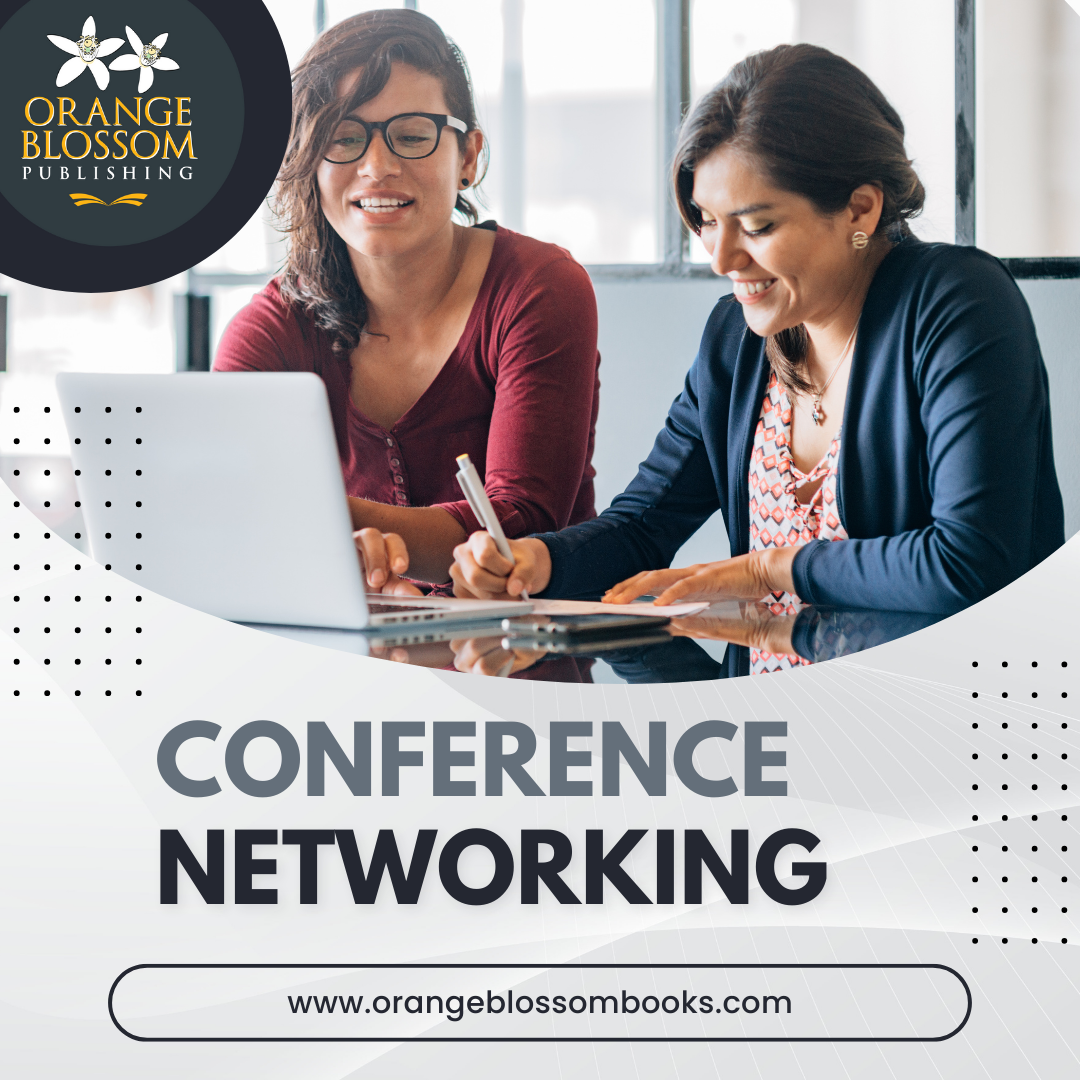
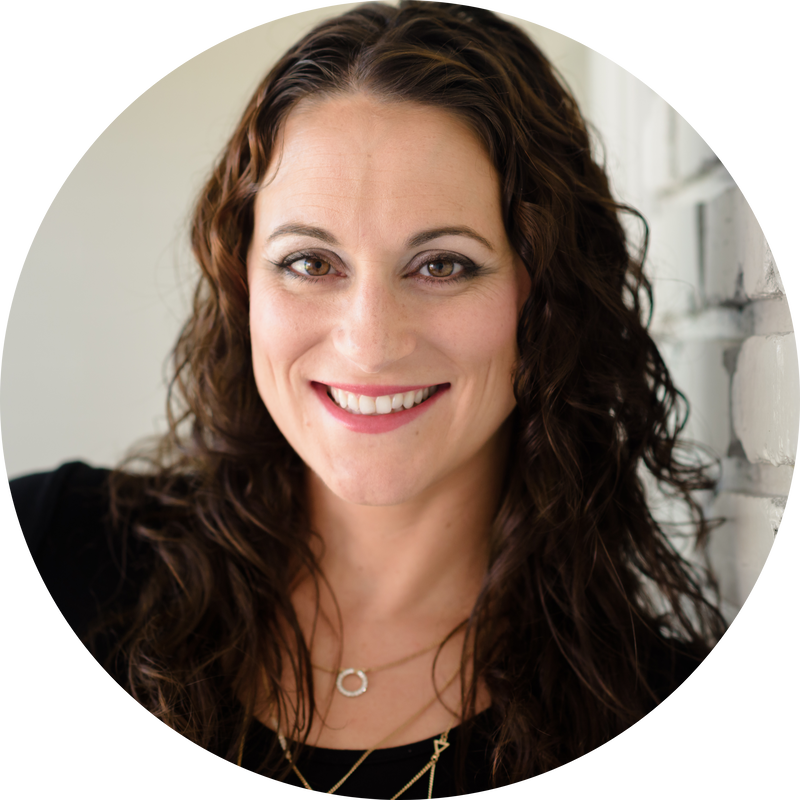

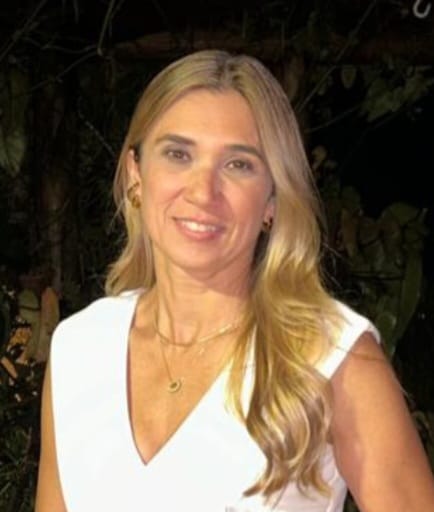
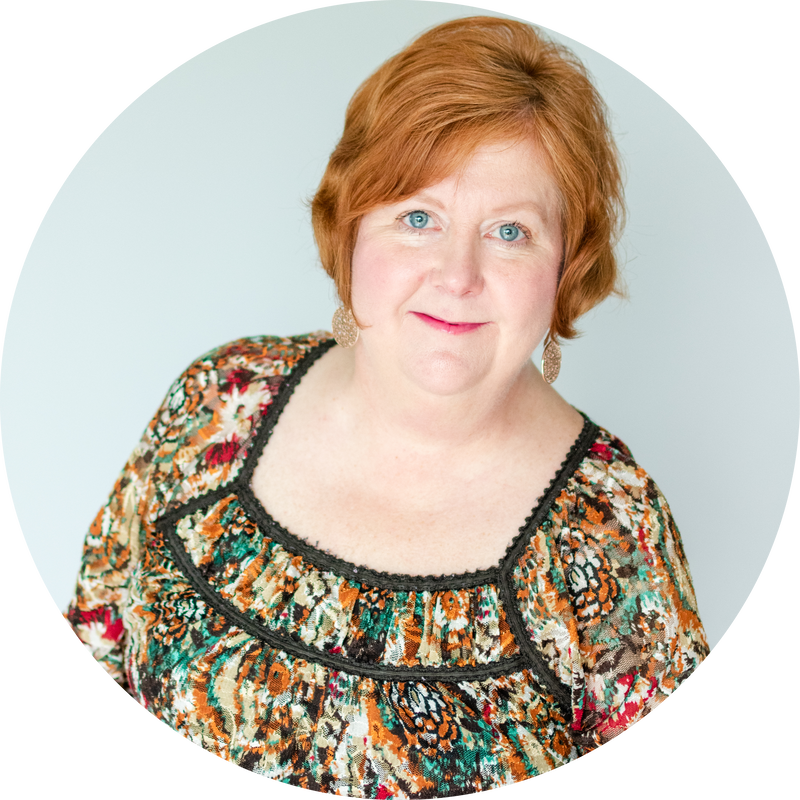
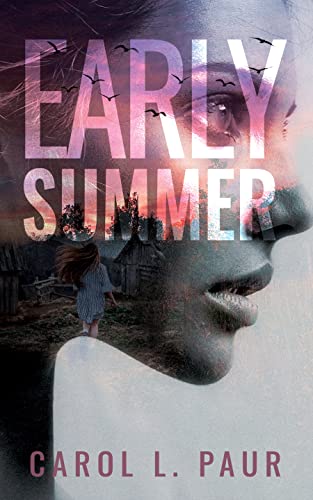
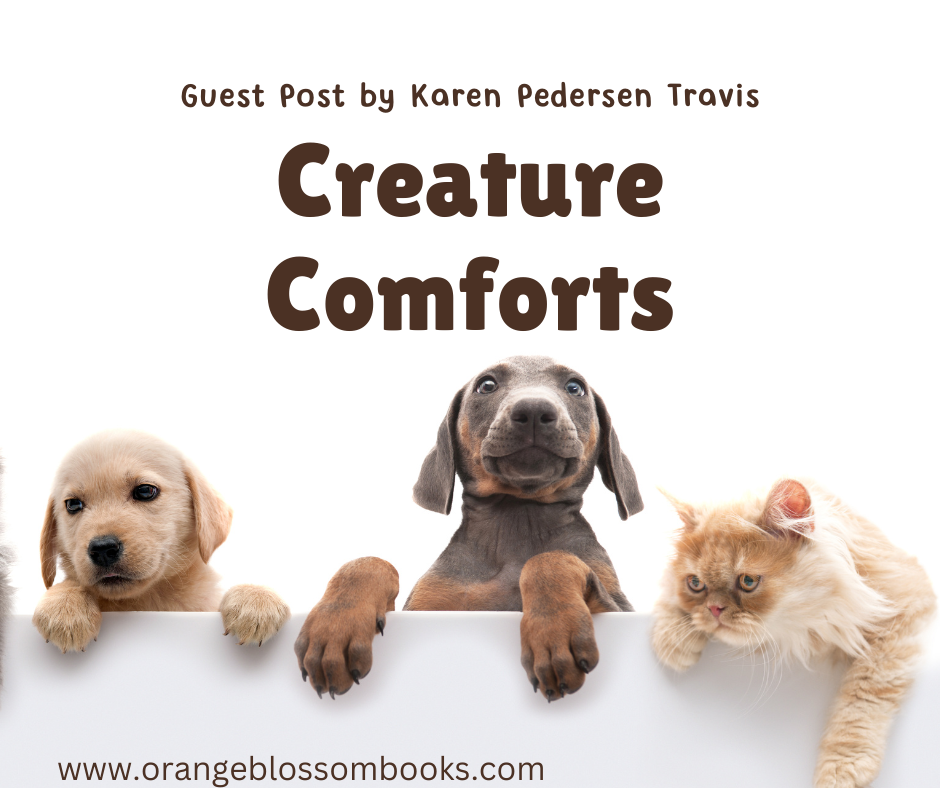
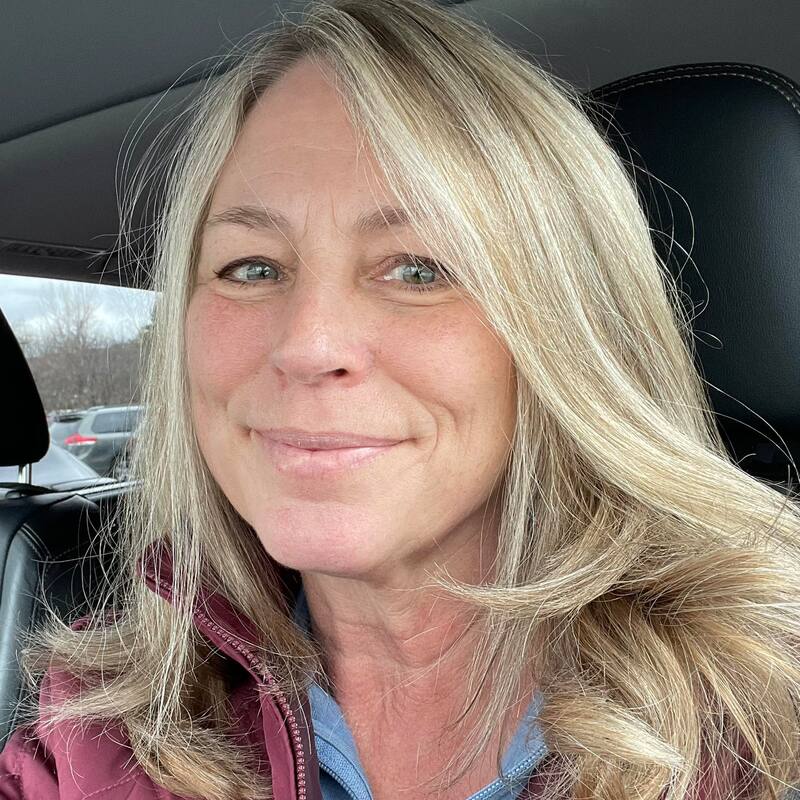
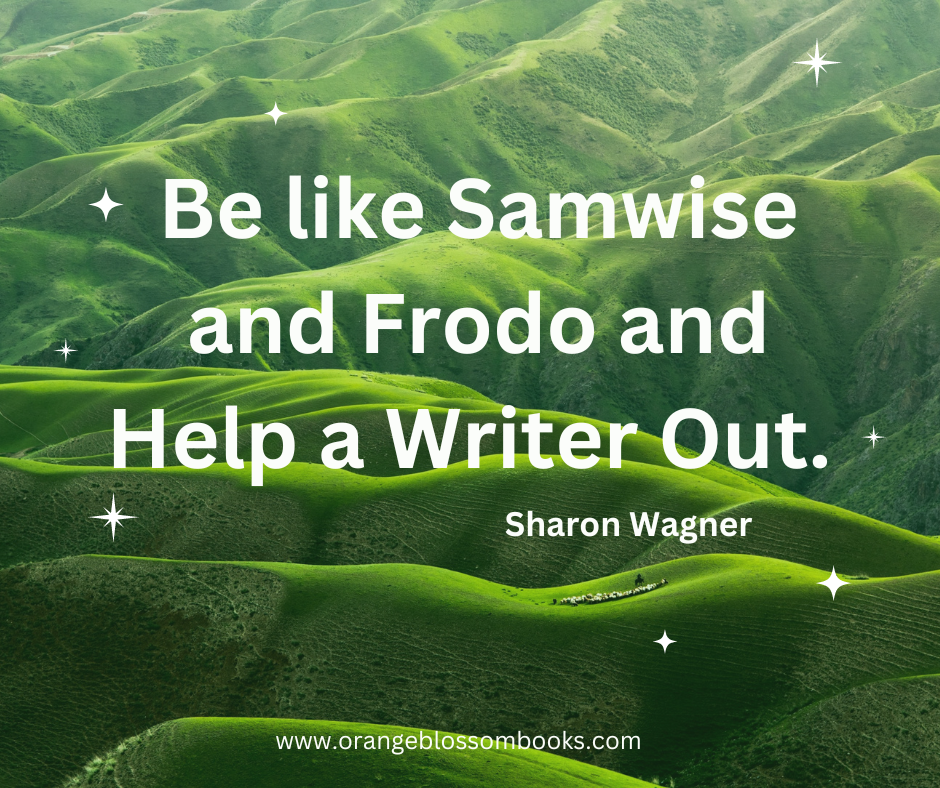
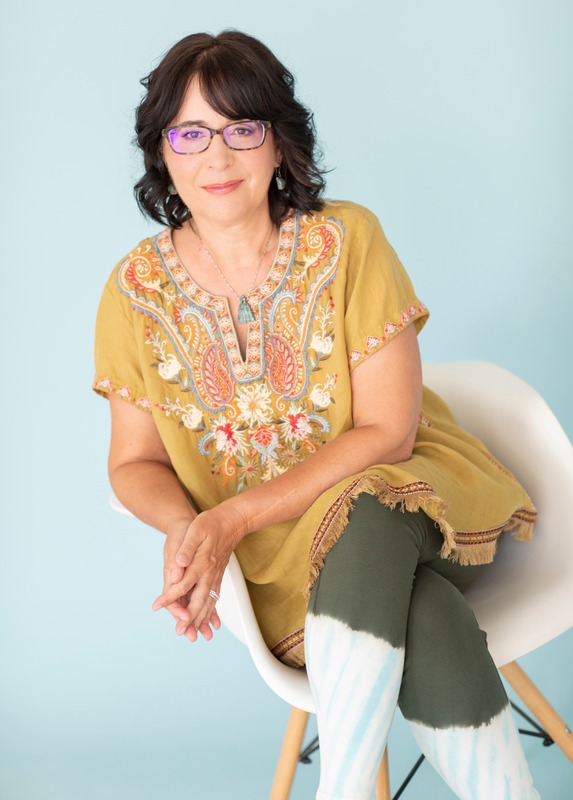
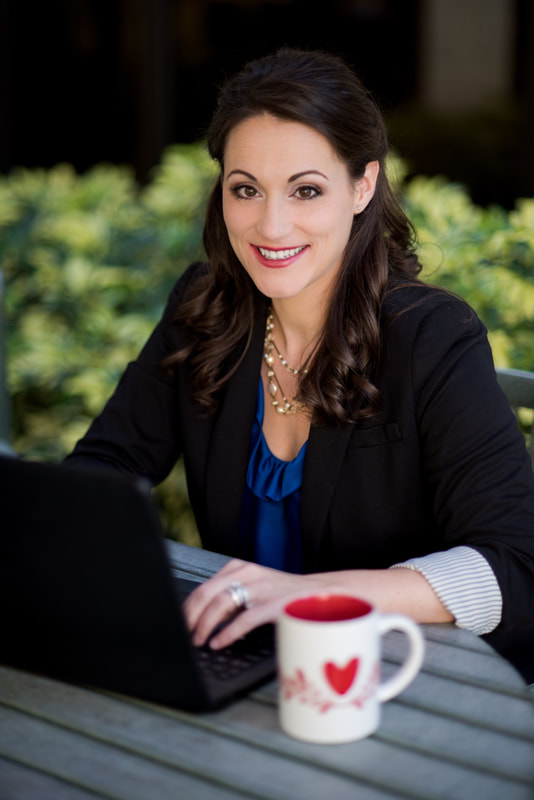
 RSS Feed
RSS Feed